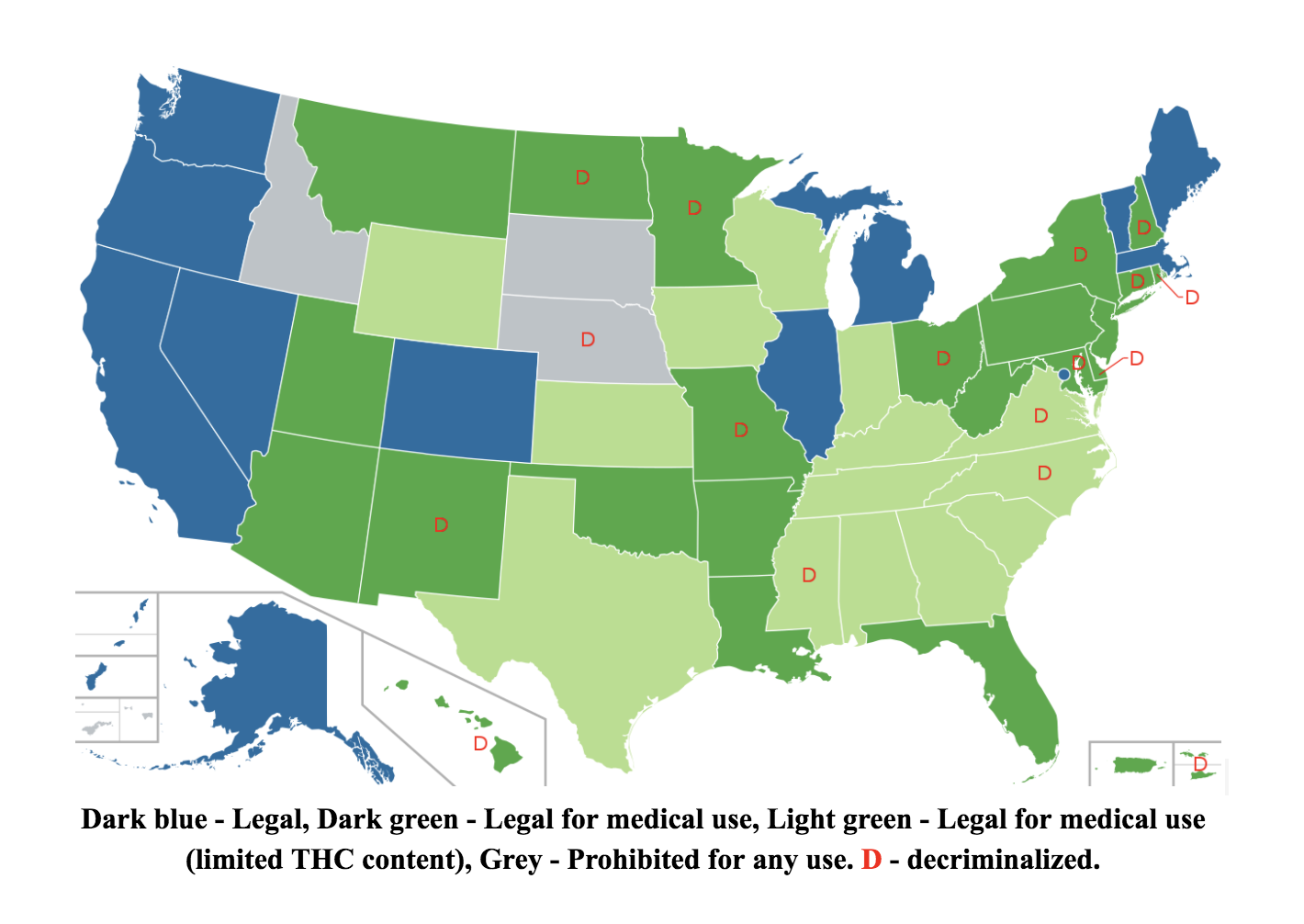A UNF professor commented on the legalization of marijuana in the United States in light of the recent arrest of a UNF student at Osprey Villages for felony cannabis possession.
Dr. Michael Hallett, a Professor of Criminology & Criminal Justice at the University of North Florida, described marijuana policy as, “an absurd mess.”
11 states, including the District of Columbia, have legalized recreational marijuana in small amounts. 15 other states have decriminalized possession to a certain extent. Decriminalization, in this sense, means that personal-consumption amounts are a civil, local infraction or misdemeanor offense at most. In other words, these small amounts won’t get you jail time.
Some of these decriminalization enactments are relatively new and were not enforced until just last year, or the beginning of this year. For example, house bill 1383 was passed in 2019 in Hawaii. It recently went into effect January 11, 2020, and says that possession of three grams or less of marijuana will be punished by a $130 fine. New Mexico passed house bill 323 in 2019 that went into effect on July 1, 2019. Instead of jail time, possession of up to a half an ounce of marijuana is a $50 civil fine.
Legislation for marijuana varies from state to state which makes it extremely difficult to keep track of what is legal and what is not, what might lead you to jail, and what may only be a civil infraction.

“These laws are excessively punitive, counter-productive, and in many ways more about political optics than reality,” according to Dr. Hallett.
The three strikes law is a law that raises the degree of punishment for U.S citizens that have been convicted of two or more serious felonies. These felonies could count as petty theft or small possession drug charges. The three strikes law is enacted in states where marijuana is not legalized or decriminalized, and can send an offender to prison for 25 plus years. Dr. Hallett’s opinion on this legislation was, “Three strikes laws have been proven to be highly counter-productive, racist, and harmful for successful drug treatment. In fact, the evidence is clearest for drug crime that the harsher the policy, the less successful it is.”
Dr. Hallett commented on his personal view regarding the fairness of people serving such long sentences for petty marijuana charges and his opinion on felony records that are forever despite reform.
“My personal view is that, given the mixed-up state of marijuana legalization/decriminalization across the nation, all marijuana convictions (when not combined with other offenses) should be expunged. Also, it is a myth that our prisons are full of simple marijuana offenders. If someone ends up incarcerated over a marijuana charge, it is probably because they were already on probation for another conviction. That said, these technical violations of probation/parole are generally too severe and help lead to mass incarceration.”
When asked his opinion about the recent arrest of a UNF student at Osprey Villages for a felony possession of cannabis, Dr. Hallett commented, “It’s outrageous to me that this student referenced in your story was taken to jail. That should have been resolved with a civil citation–and perhaps will be by the time it gets to court.”
Dr. Hallett urged that students be reminded of the UNF counseling center, a free, safe and confidential place to discuss any issues you may have with substance abuse.
“Addiction and substance abuse are very real concerns — addiction is a real thing – and we should not confuse “legalization” talk by equating drug use with eating brownies. If a student (or anyone) so desires escape from emotions and troubles that they resort to constant use of substances (beer, MJ, or otherwise) – I would still encourage counseling and open conversation with someone safe. Where we fail is not providing safe places for people to address underlying problems,” said Dr. Hallett.
For further information or access to the UNF counseling center, click here.
For problems involving substance abuse and/or mental health, click here for information about the Substance Abuse and Mental Health Services Administration.
For more information on marijuana legislation in the United States, click here.
__
For more information or news tips, or if you see an error in this story or have any compliments or concerns, contact editor@unfspinnaker.com.












